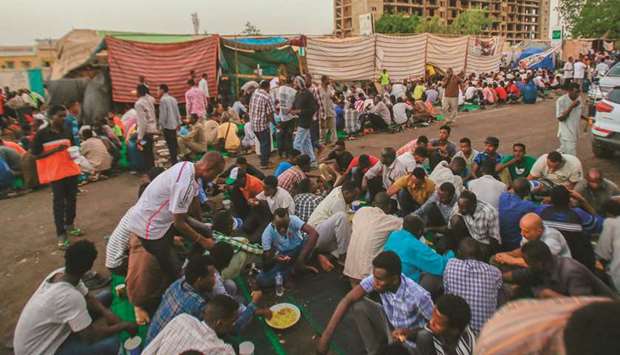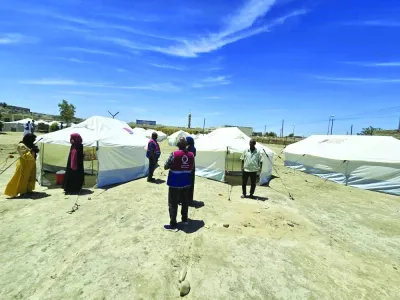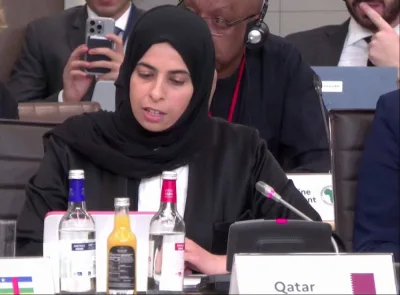Sudan’s army rulers and protest leaders resumed talks yesterday to finalise a new governing body that would replace the generals who took power after ousting longtime ruler Omar al-Bashir on the back of a popular uprising.
The resumption of talks comes following pressure from world powers to reach an agreement over an interim government that would be civilian-led — a key demand of demonstrators.
“The talks between the Transitional Military Council and the Alliance for Freedom and Change have started,” a statement by the military council said, in reference to the umbrella protest movement.
The generals and protest leaders have been at loggerheads on the thorniest issue — the makeup of the new governing body that would rule Sudan for a three year transitional period after the ouster last month of Bashir.
The agreement had been expected on Wednesday, but the military council suspended the negotiations for 72 hours.
Ahead of yesterday’s talks the protest movement raised the ante by insisting that the ruling body should be headed by a civilian.
The Alliance for Freedom and Change said it is determined that the country’s new ruling body be “led by a civilian as its chairman and with a limited military representation”.
The existing military council is headed by General Abdel Fattah al-Burhan, and the generals insist that the overall new body be military-led while the protest leaders demand a majority civilian body.
On the eve of the talks, hundreds of supporters of Islamic movements rallied outside the presidential palace in Khartoum warning they would reject any deal that would exclude the Islamic law Shariah in the country’s political roadmap.
“The main reason for the mobilisation is that the alliance (the main protesters’ umbrella group) is ignoring the application of Shariah in its deal,” said Al-Tayieb Mustafa, who heads a coalition of about 20 Islamic groups.
“This is irresponsible and if that deal is done, it is going to open the door of hell for Sudan,” he said.
Bashir came to power in 1989.
At Saturday’s rally, cleric Mohamed Ali Jazuli had a warning for the military council.
“If you consider handing over power to a certain faction, then we will consider it a coup”, he vowed.
Saudi Arabia meanwhile deposited $250mn in Sudan’s central bank as part of an aid package it announced following Bashir’s ouster.
“The ministry of finance has deposited 937.5mn Saudi riyals into the central bank of Sudan,” it said in a statement yesterday.
In April, Saudi Arabia and the United Arab Emirates announced $3bn (2.7bn euros) in financial aid for Sudan.
The UAE said on April 28 it was depositing $250mn in Sudan’s central bank.
The oil-rich Gulf states pledged to inject $500mn into Sudan’s central bank and $2.5bn to help provide food, medicine and petroleum products, the official Saudi Press Agency (SPA) said last month.
It was Sudan’s worsening economic crisis that triggered nationwide protests against Bashir.
Before talks were suspended earlier this week, the generals and protest leaders had agreed on several key issues, including a three-year transition period and the creation of a 300-member parliament, with two thirds of lawmakers to come from the protesters’ umbrella group.
But those talks were marred by violence after five protesters and an army major were shot dead near the ongoing sit-in outside the military headquarters in central Khartoum, where thousands have camped out for weeks.
Initially, the protesters gathered to demand Bashir resign — but they have stayed put, to pressure the generals into stepping aside.

Sudanese protesters gather to break their fast outside the army headquarters in Khartoum yesterday, during the holy month of Ramadan.


